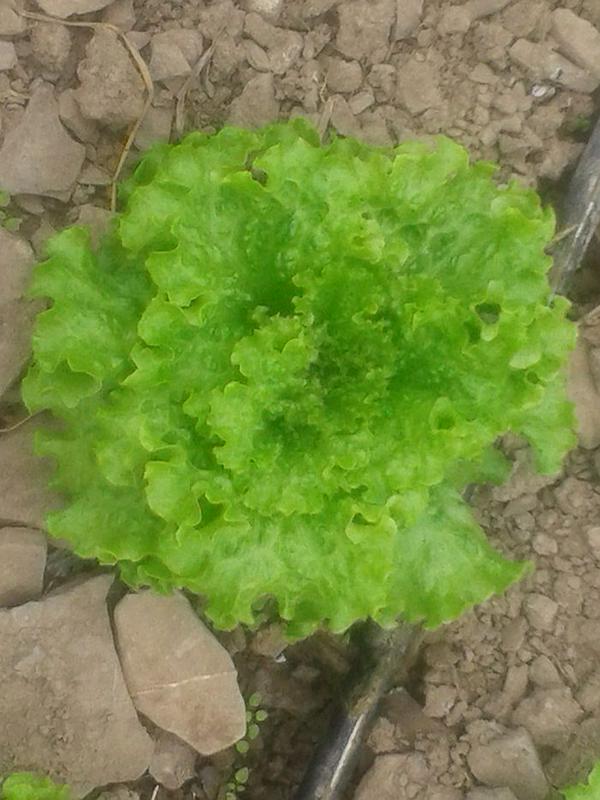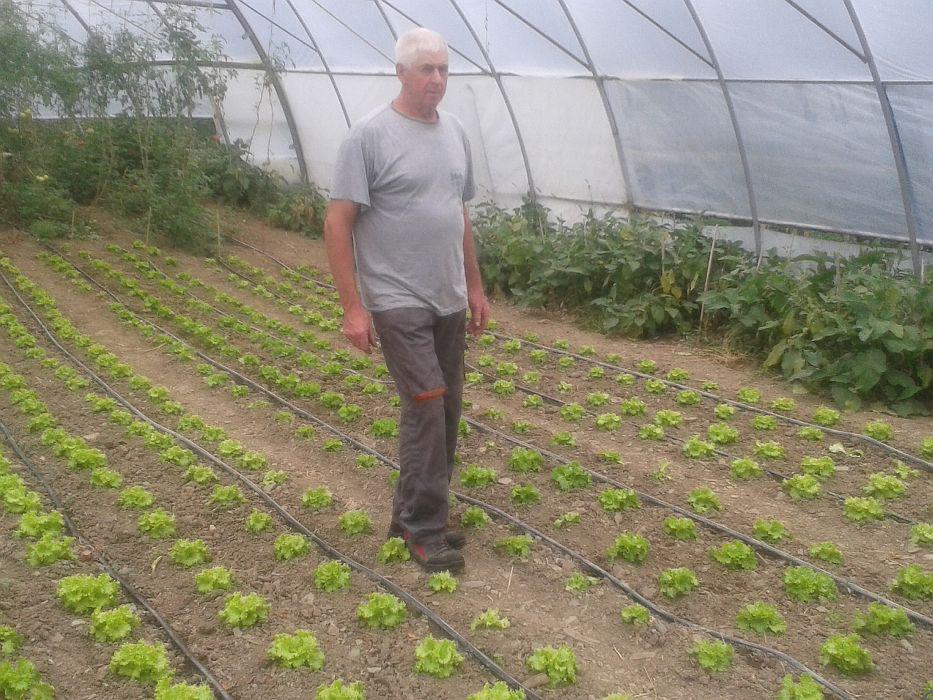
"Gorizia Vegetable Gardens" is a project worth 495,900 euro, co-financed by the EU and the state of Slovenia.

The network of 60 providers extends for 50 kilometres on both sides of the border.
came alive at our western border – a joint cross-border market for agricultural produce.
Farmers and buyers are connected through a virtual market. Byers from both sides of the border can order and take over the goods at the purchase station in Sant' Andrea (Štandrež) on the Italian side of the frontier, without involvement of commercial agents. The cross-border project, supported by the European Union with a half million euro, will soon be expanded with home delivery of vegetables and fruit.
Gorizia vegetable gardens are the result of cooperation of the Regional Development Agency (RRA) of Northern Primorska, and the National Cooperative League Friuli – Venezia Giulia from the other side of the border. Darij Krpan from RRA explained the rules of the cross-border web market: "Buyers can order produce from farms on both side of the border at the web address www.ortigoriziani.eu. Our partner from the other side of the border collects orders, and every Wednesday collects the ordered goods at the farms. We have bought a special electric vehicle for the purpose of this cross-border project, and it has to travel quite far – all the way from Posočje to the Vipava valley, the Karst, the Trnovsko-Banjška plateau on our side, and the entire Gorizia region on the other side of the border. Buyers collect the ordered goods every Thursday in Sant' Andrea, a little village close to the border."
Soon home deliveries will be available
The web market will soon be upgraded with home deliveries. Črtomir Špacapan, director of the RRA of Northern Primorska, is convinced it will happen soon: "Now the buyers must drive to the cooperative in Sant' Andrea for the home grown produce, but we are getting everything ready for delivery of fruit and vegetables directly to our buyers' homes. We estimate there will be enough orders. Analyses show that at least one fifth of the consumer is already buying online."
Lilijana Brajlih, the manager of the already well-established web-shop with healthy food, is convinced of the future success of the virtual cross-border market: "From my web experiences the buyers are mostly younger people who are more familiar with electronic shops. Generally speaking, the clients are young families who swear by home-grown healthy food, and bio food. The older have started 'clicking' as well, mostly those who emphasize healthy life style, and healthy food." Brajlih is managing the domestic fair trade shop Moja štacuna, which is a part of the development project of the social entrepreneurship. She provides local fruit for the Traditional Slovenian Breakfast to schools and kindergartens.
As few intermediaries as possible
The basis of the virtual cross-border market is to allow access to home grown and eco food with as few intermediaries as possible. Krpan stresses: "It is not our aim to deliver food to hospitality industry, and public institutes – we wish to establish a network among smaller farms, smaller providers, and as many consumers as possible. There should be as few intermediaries as possible connecting local offer and demand, as that is the only way to keep acceptable prices. We know that each additional link in the chain increases the price of the final product by a couple of cents, or even a couple of euros – and it is our intention to offer home grown food at accessible prices. As it is, locally produced, home grown food is more expensive than (mostly imported) food offered by wholesalers, which means prices at the virtual market should be kept in check."
Presently 16 farms participate in the Gorizia Vegetable Gardens project, selling home grown fruit and vegetables. By the end of the year at least 60 is expected to join, at least that is the conviction on both sides of the border."We would like to expand both offer and demand on both side of the border. For now we are delivering to both Gorizia regions on both side of the border, and the next step is to include Trieste and Udine," Špacapan says.
Farmers: "There are more and more 'clicks'!"
Farmers from both sides of the border are enthusiastic about the initial response to the virtual market. Mitja Ipavec from Šmarje na Ajdovskem, one of the numerous suppliers, says: "On our farm we grow fruit, and grapes for winemaking; for the last three years we have been intensively dedicating ourselves to growing vegetables as well. As we have been known for the early fruit from Vipava region, most frequently people demand from us our fruit, but there are more and more clicks for our tomato paste, string beans, eggplants, season salads – actually, all fresh vegetables. Since we are an ecological farm, and have all the necessary certificates on healthily produced food, people trust us."
We asked the farmer who determines the price at the virtual market – is it the cooperative, or they themselves? Ipavec told us that every farm forms its own prices of their produce. As they are all accessible at the Gorizia Vegetable Gardens, ie. www.ortigoriziani.eu, there must not be too large discrepancies between the prices offered by individual farms. They try to keep their prices accessible, and thus make decisions easier for their customers, when deciding whether to buy produce offered by wholesale traders, or domestic products offered on-line.
Mojca Dumančič, TV Slovenija
Translated by G. K.
"Gorizia Vegetable Gardens" is a project worth 495,900 euro, co-financed by the EU and the state of Slovenia.
The network of 60 providers extends for 50 kilometres on both sides of the border.


































































